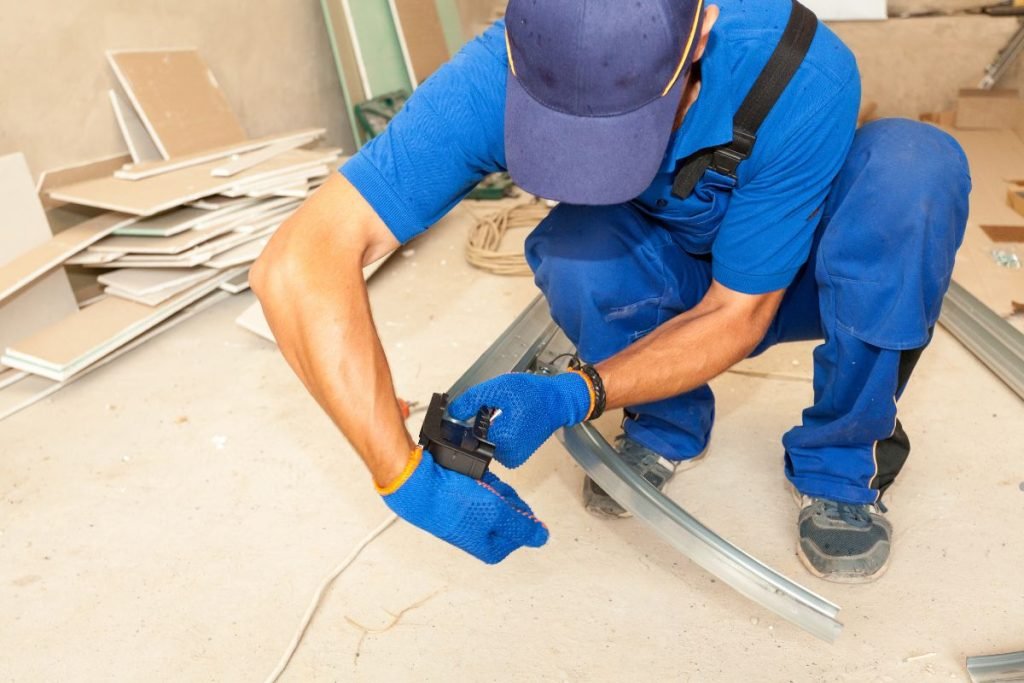
Is your garage an uncomfortably hot box in the summer and a freezing wasteland in the winter? Garage door insulation is a game-changer for US homeowners, offering benefits like significant energy savings, a more comfortable garage environment, and reduced noise. This comprehensive guide will walk you through everything you need to know to make the right insulation choice for your home.
Introduction: Why Insulate Your Garage Door?

Let’s face it: garages are often the forgotten space regarding home comfort. But with an uninsulated garage door, you’re losing energy and creating an uncomfortable environment. Insulating your garage door offers several key advantages:
- Energy Savings: A well-insulated garage door prevents heat transfer, keeping your garage cooler in the summer and warmer in the winter. This reduces the strain on your HVAC system, leading to lower energy bills.
- Temperature Control: Insulation creates a more consistent temperature in your garage, making it a more usable space for hobbies, storage, or even a home gym.
- Noise Reduction: Insulation dampens sound, reducing noise from outside and minimizing the sound of your garage door opening and closing.
Understanding R-Value: What It Means for Insulation
The R-value measures an insulation material’s resistance to heat flow. The higher the R-value, the better the insulation performs. When choosing garage door insulation, consider your local climate. If you live in a colder region, you’ll want a higher R-value than if you live in a warmer area. Don’t just grab the cheapest option; investing in a higher R-value now can save you more money on energy bills in the long run.
Ready to enjoy a more comfortable and energy-efficient garage? Call Us today for a free consultation and estimate!
Types of Garage Door Insulation Materials
There are several types of garage door insulation available, each with its pros and cons:
- Fiberglass Insulation: This is a common and relatively inexpensive option. It’s available in batts or rolls. (
- Polystyrene Insulation (EPS & XPS): Polystyrene comes in two main types: Expanded Polystyrene (EPS) and Extruded Polystyrene (XPS). XPS is denser and has a higher R-value than EPS.
- Polyurethane Insulation: This type of insulation is often spray-applied, creating a tight seal and excellent insulation. It’s typically more expensive than other options.
- Reflective Foil Insulation: Also known as radiant barrier, this type of insulation reflects heat away from the garage. It’s most effective in hot climates.
DIY vs. Professional Garage Door Insulation Installation
Deciding whether to install garage door insulation yourself or hire a professional depends on your skills, time, and budget. DIY installation can save you money on labor costs, but it requires some basic carpentry skills and attention to detail. Professional installation ensures the job is done correctly and can save you time and hassle. If you’re not comfortable working with tools or you’re unsure about any aspect of the installation process, hiring a professional is the best option. Learn more about loft insulation
Step-by-Step Guide to DIY Garage Door Insulation

If you’re up for the challenge, here’s a step-by-step guide to DIY garage door insulation:
- Tools and Materials Needed: Gather your tools and materials, including insulation (of your chosen type), a utility knife, measuring tape, safety glasses, gloves, and adhesive or tape.
- Preparing the Garage Door: Clean the garage door thoroughly and ensure it’s dry. Repair any damage or rust.
- Cutting and Installing Insulation: Measure and cut the insulation to fit each panel of your garage door. Apply adhesive or tape to secure the insulation in place.
- Sealing Gaps and Cracks: Seal any gaps or cracks around the edges of the insulation to prevent air leaks.
Cost of Garage Door Insulation: What to Expect
The cost of garage door insulation varies depending on the type of insulation you choose, the size of your garage door, and whether you hire a professional. DIY installation is typically less expensive upfront, but professional installation may be more cost-effective in the long run if you factor in your time and potential mistakes. Get quotes from multiple contractors to compare prices and services.
Don’t let high energy bills drain your wallet! Call Us today for a personalized garage door insulation cost estimate. We offer competitive pricing and expert installation services.
Maintaining Your Insulated Garage Door
Once your garage door is insulated, it’s essential to maintain it to ensure its long-term performance. Regularly inspect the insulation for any signs of damage or wear. Replace any damaged sections promptly. Keep the garage door clean and free of debris. Learn more about garage insulation
.FAQs About Garage Door Insulation
Here are some frequently asked questions about garage door insulation:
Does garage door insulation really make a difference?
Yes, it can significantly improve energy efficiency, temperature control, and noise reduction.
What R-value should I choose for my garage door?
The ideal R-value depends on your climate and budget. Consult with a professional for personalized recommendations.
Can I insulate a steel garage door?
Yes, most steel garage doors can be insulated.
Will insulation make my garage door heavier?
Insulation will add some weight to your garage door, but it’s usually not significant enough to require adjustments to the opener.
Conclusion: Enjoy a More Comfortable and Efficient Home
Garage door insulation is a worthwhile investment for any US homeowner looking to improve energy efficiency, comfort, and noise reduction. By choosing the right insulation material and either installing it yourself or hiring a professional, you can enjoy a more comfortable and efficient home for years to come. Don’t wait any longer to experience the benefits of garage door insulation! Contact us today!
